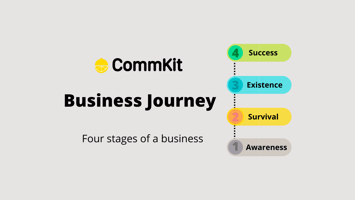Online shop local initiatives transforming communities
Benefits of building a community marketplace that can help sustain and grow small businesses in our local communities.
It's been a fantastic few years for most local businesses. Many have seen tremendous growth from their baseline and revenue growth. A large part of it during the lockdown and later has been through the wave of support from social media and households' renewed look into local small businesses.
Stay home - shop local
NZ Post research on consumer spending behavior over the COVID lockdowns revealed that more than 170,000 kiwis have accessed online shopping for the first time, just in one month in April 2020. Kiwis have spent more than $200 million NZD of which about 71% went to domestic small businesses.
In large part, the boost in revenue for these local small businesses came, thanks to a massive number of 'buy local' promotions, media articles, and initiatives at different levels. Some initiatives literally took off overnight - the likes of chooice, shoplocal.nz, shopkiwi, golocal, thehivenz, commkit, and more.
For buyers, more options in the local community meant their lockdowns are not as boring and stressful. So they opened up their wallets to indulge in everything the local businesses got to offer.
Side hustle no more
Many side hustlers and hobbyists sitting on the sidelines wondering about the commercial viability of their product or service, started seeing quite a bit of market traction during this time. The orders keep coming for anything local like the party that never ends.
Take for example our friend in the Hutt valley making homemade desserts. Once contactless deliveries started, his orders went through the roof. Everyone order two or three times their regular order and take it at a set price. For weeks their oven was running all the time.
Now they all have seen the light of day and the possibility for them to build a profitable business with their side hustle.
Local farmers market
Coming out of the lockdowns, the most affected small businesses were the vendors in the local farmers market. Without markets, they were struggling to get their products in front of enough customers.
Many tried to go online with whatever solution they can get their hands on - some built their own websites with popular DIY website builders like Wix, Shopify, ecwid, and many more. However, getting visibility online for a brand is a long game and it would not fix its problems overnight.
Again, social media influencers came to the rescue. Many councils deployed their internal communication teams to engage with wider communities promoting local small businesses. Huge efforts on Facebook and Instagram groups really made a difference for a large number of local businesses including cafes, restaurants, food trucks, home-based businesses, and more.
It's a problem that needs a long-term community-level solution to nurture and build more local businesses.
Local businesses
Beyond the push for all things local over the past two years, the momentum seems to have drastically slowed down over 2022.
A report from Xero for small businesses suggests 9 out of 10 small businesses in New Zealand experience negative cash flow. This seems to affect their ongoing expenses for operations and growth budgets.
While some of it could be a seasonal pattern due to the nature of their business, many feel the momentum experienced has slowed down quite a bit. The ongoing cost of living challenges, falling house prices, rising interest rates, and inflationary pressures makes it even harder for local small business. These businesses hardly have the necessary backup funds in savings as a buffer to see off the impending slowdown.
This seems to show up in the online activities of the many buy local initiatives as well. A large number of them have become dormant. And the businesses depended on them moving on to other places online desperately looking for a lifeline.
Every farmer's market these days, overflowing with vendors coming in droves. While it is good to have more options for the market organisers to work with, it is difficult for small businesses to make a cut.
The short-term band-aid put in with social media-driven growth seems to have run its course. It's about time these small businesses recognise the longer-term strategy behind their product or service.
Online community marketplaces
Though it is a crowded space, the online marketplace space has some clear winners set up for the long term. One of the main indicators of it would be their focus on local communities.
Any shop local initiative purely built on social media marketing has to successfully replicate the model onto a scalable platform like a marketplace app. Chooice has been on that journey for some time now but the evidence shows it's not an easy transition. Many others decided to pivot into just a business directory and listing service providers. The problem is there are too many of them now, without much long-term value for the businesses listed.
CommKit has been focused on building an online marketplace for small businesses in our local communities. Started as a small local initiative in the Hutt valley, it has now evolved into a platform capable of handling these challenges. With 195+ local communities across the wider Wellington region, CommKit communities are as local as they can get. On average, each CommKit community has about 1200+ households in a suburb (Some are larger based in larger suburbs). It also extends to 'Special Communities' like local farmers' markets listed as online farmers' market. A vendor and customer can switch between their geographic community and special community anytime.
Today's online marketplaces need to be flexible, scalable, and secure and have hyperlocal reach. CommKit is the only online community marketplace platform that can offer all of that and much more for our local community small businesses.
IIn summary, the local small business landscape in New Zealand has never been this close to becoming a self-sustaining industry. With the right incentives and guidance, it is poised to build a thriving local economy for all kiwis both present and future generations to enjoy.



